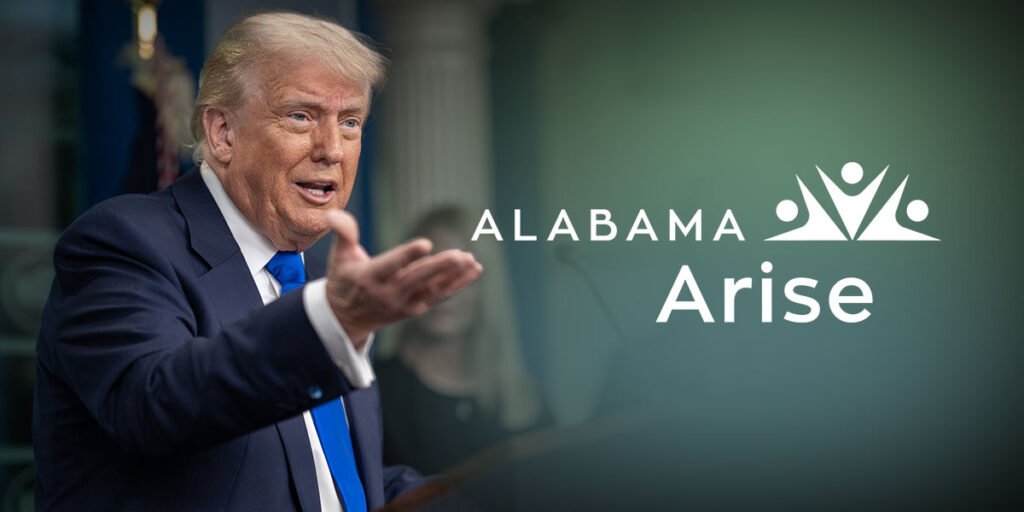Alabama Nonprofit Challenges Trump’s Tax and Spending Plans
In Alabama, a nonprofit organization is actively pushing back against President Donald Trump’s proposed tax and spending measures currently being discussed in the Senate. On their website, they mention that they focus on advocating for policy changes aimed at assisting marginalized Alabamians who face poverty.
A press conference was held in Montgomery last week to publicly oppose what Trump has termed a “big and beautiful bill.” The nonprofit argues that the proposed budget would hurt those in need, but the lawmakers involved contend that it won’t.
The legislation would extend the tax cuts from 2017, while avoiding taxes on tips and overtime pay. It also proposes added work requirements for Medicaid benefits, increases funding for immigration enforcement, and reinstates state and local income tax deductions.
Related: Alabama Democratic Congressional delegation votes against “big and beautiful bill”
Robin Heiden, the executive director of the Alabama nonprofit, expressed at the press conference that it is unjust to negatively impact those who are struggling to assist those who are already better off. “The budget moving through Congress is not just morally wrong; it’s also poor policy and detrimental to our state,” she asserted.
The organization is advocating against budget cuts that would eliminate crucial support for food aid, health coverage, and other vital services that many Alabamians depend on.
Some claims regarding the impacts of the Alabama bill have been found to be misleading. For instance, in terms of food assistance, the bill proposes a modest state cost-sharing plan for the Supplemental Nutrition Assistance Program (SNAP) aimed at enhancing the program’s efficiency and accuracy.
According to the Senate proposal, states that maintain a SNAP payment error rate below 6% will continue to receive full federal funding for benefits. However, if they exceed that rate, they will have to start sharing costs. This adjustment is intended to allow Alabama enough time to improve its management strategies.
Alabama already ranks well in terms of maintaining a low SNAP error rate. Supporters of the legislation argue that it encourages responsible management of taxpayer dollars without jeopardizing access to necessary benefits for eligible individuals.
Additionally, concerns have been raised about potential healthcare implications, with estimates suggesting that approximately 200,000 Alabamians might lose their market compensation. This figure seems to relate to the upcoming expiration of certain benefits established during the COVID-19 pandemic, originally part of the 2021 American Rescue Plan Act and later extended until 2025 under the Inflation Reduction Act.
While the EPTC was always meant to be temporary, its expiration was not deemed significant by the current Republican-led Congress, and the senators have pushed back against claims regarding the 200,000 figure, labeling it as a misrepresentation meant to concern the public. They assert that the expansion of the EPTC was based on an emergency declaration from the pandemic that has now lapsed, making its expiration foreseeable for policymakers on both sides.
Concerning Medicaid, Alabama is not expected to lose funding as a result of the bill. The Senate’s version ensures that Alabama retains its current Medicaid provider tax rate and commits to investing at least $250 million into rural hospitals over the next five years.
The work requirements for Medicaid also come with various exceptions for individuals over 65, under 18, pregnant women, and those with disabilities. Those lacking exceptions must either work, train, volunteer, or study for 20 hours per week in order to qualify for Medicaid benefits.
















